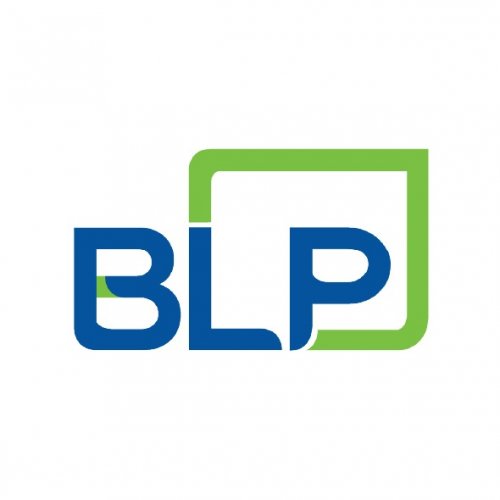Best International Trade Law Lawyers in Managua
Share your needs with us, get contacted by law firms.
Free. Takes 2 min.
List of the best lawyers in Managua, Nicaragua
About International Trade Law in Managua, Nicaragua
International Trade Law in Managua, Nicaragua, encompasses a variety of legal norms and regulations governing commercial transactions between Nicaraguan businesses and foreign entities. This area of law is particularly crucial given Nicaragua's active participation in global markets and numerous trade agreements. The laws ensure the fair exchange of goods and services, compliance with international standards, and protection of national economic interests. Practitioners in this field must navigate a complex landscape of domestic policies, foreign regulations, and international trade agreements.
Why You May Need a Lawyer
Engaging a lawyer specializing in International Trade Law can provide crucial assistance in several scenarios:
- Negotiating trade agreements or contracts with foreign entities.
- Ensuring compliance with international trade regulations and local laws.
- Resolving disputes arising from cross-border transactions.
- Handling issues related to tariffs, export controls, and import regulations.
- Advising on intellectual property rights in international trade.
Local Laws Overview
Key aspects of local laws pertinent to International Trade Law in Managua include:
- The Nicaraguan Customs Code: Governs import/export procedures and tariffs.
- The Foreign Investment Promotion Law: Provides a framework for foreign investment protection and facilitation.
- Free Trade Agreements (FTAs): Nicaragua is a member of CAFTA-DR and other bilateral agreements promoting trade.
- The Competition Law: Ensures fair competition and prevents monopolistic practices affecting trade.
- Regulations on export and import licensing affecting specific goods such as agriculture and pharmaceuticals.
Frequently Asked Questions
What is the main governing body for trade regulations in Nicaragua?
The Ministry of Development, Industry, and Trade (MIFIC) is primarily responsible for regulating trade and commerce in Nicaragua.
What trade agreements is Nicaragua a part of?
Nicaragua is a party to several trade agreements, notably the Central America Free Trade Agreement-Dominican Republic (CAFTA-DR). It also has agreements with Mexico, Taiwan, and Chile, among others.
Are there any restrictions on importing goods into Nicaragua?
Yes. Certain goods require import licenses, and there are restrictions on goods that may pose risks to health, safety, or national security.
How does Nicaragua handle trade dispute resolution?
Disputes can be resolved through arbitration, mediation, or the judicial system. Nicaragua recognizes various international conventions on arbitration for trade disputes.
Do businesses need specific licenses to export from Nicaragua?
Yes, some products require specific export licenses, particularly those related to natural resources or restricted goods.
What are the tax implications for international trade in Nicaragua?
Imported goods may be subject to Value Added Tax (VAT), customs duties, and other fees depending on the product classification and trade agreements.
Can a foreign company own a business in Nicaragua?
Yes, foreign companies can own businesses in Nicaragua, subject to compliance with the Foreign Investment Promotion Law.
What are common legal challenges faced by foreign traders in Nicaragua?
Issues often arise from understanding local laws, handling bureaucratic procedures, dealing with customs, and ensuring contractual compliance.
How are intellectual property rights managed for international trade?
Nicaragua is a member of the World Intellectual Property Organization (WIPO) and adheres to international standards for protecting IP rights.
What recourse do I have if my goods are delayed or lost during transport?
Legal recourse typically involves claims based on international carriage conventions or specific trade agreements terms. Consulting with legal counsel is advisable.
Additional Resources
Useful resources and organizations include:
- The Ministry of Development, Industry, and Trade (MIFIC)
- The Nicaraguan Customs Administration
- National and regional chambers of commerce
- Nicaraguan Export and Investment Center (CEI)
- Law firms with dedicated international trade departments
Next Steps
If you need legal assistance in International Trade Law, consider the following steps:
- Identify your specific legal needs and issues related to trade.
- Research and consult with specialized international trade lawyers in Managua for expert advice.
- Ensure the lawyer or firm has experience with your particular trade issues and relevant regional laws.
- Prepare all relevant documentation and information regarding your trade activities.
- Engage in a consultation to discuss potential legal strategies or solutions.
Lawzana helps you find the best lawyers and law firms in Managua through a curated and pre-screened list of qualified legal professionals. Our platform offers rankings and detailed profiles of attorneys and law firms, allowing you to compare based on practice areas, including International Trade Law, experience, and client feedback.
Each profile includes a description of the firm's areas of practice, client reviews, team members and partners, year of establishment, spoken languages, office locations, contact information, social media presence, and any published articles or resources. Most firms on our platform speak English and are experienced in both local and international legal matters.
Get a quote from top-rated law firms in Managua, Nicaragua — quickly, securely, and without unnecessary hassle.
Disclaimer:
The information provided on this page is for general informational purposes only and does not constitute legal advice. While we strive to ensure the accuracy and relevance of the content, legal information may change over time, and interpretations of the law can vary. You should always consult with a qualified legal professional for advice specific to your situation.
We disclaim all liability for actions taken or not taken based on the content of this page. If you believe any information is incorrect or outdated, please contact us, and we will review and update it where appropriate.








